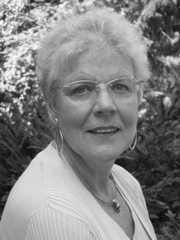- Kategorie: Uncategorised
- Geschrieben von Super User
- Zugriffe: 35394
IAAB
International Academic Advisory Board (IAAB)
Mit dem IAAB verfügt das künftige "European College of Human Ecology" über einen internationalen wissenschaftlichen Beirat renomierter Experten. 2012 geründet, gehören zu seinen Mitgliedern:
|
Prof. Dr. Ernst-Ulrich von Weizsäcker |
Co-Präsident Club of Rome - Germany, Chair |
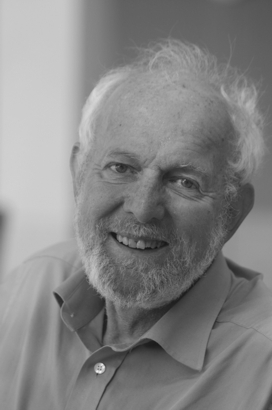 |
Education Ernst Ulrich von Weizsäcker received a Diploma in Physics from the University of Hamburg and graduated with a Ph.D. in Biology from the University of Freiburg i.Br. Career In 1972 Weizsäcker became a Professor of Biology at the University of Essen. From 1975 to 1980 he served as President of the University of Kassel, then called „Gesamthochschule Kassel.“ It had been founded in 1971 with a unique teaching program heavily geared to practical and project work and with an interdisciplinary resarch orientation particularly concerned with environmental, climate and energy problems. In 1981 von Weizsäcker joined the UN Centre for Science and Technology in New York as its Director. Subsequently he was appointed Director of the Institute for European Environmental Policy located in Bonn, London and Paris (1984-1991) and acted as Founding President of the Wuppertal Institute for Climate, Environment and Energy (1991-2000). In 1998 Weizsäcker entered politics in becoming a member of the German parliament („Bundestag“, until 2005). From 2006 to 2008 he served as Dean of the Bren School of Environmental Science and Management, University of California in Santa Barbara. Presently Weizsäcker is Co-President of the Club of Rome and a Honorary Professor at the University of Freiburg i.Br. Awards Distinctions received by von Weizsäcker include the Duke of Edinburgh Gold Medal by WWF International (1986), a honorary doctorate from Soka University in Hachioji, Japan (2000), the Environmental Award („Umweltpreis“) from the German Federal Environmental Foundation (Deutsche Bundesstiftung Umwelt, 2008), the Great Cross of Merit („Grosses Verdienstkreuz“) of the Federal Republic of Germany (2009) and the Theodor Heuss Prize (2011). |
| Prof. Laurent Boetsch |
Exekutivvorstand ECOLAS & Washington & Lee University - USA |
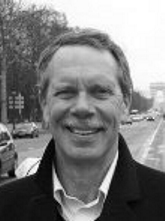 |
Education Laurent Boetsch received a B.A. in Spanish from Washington and Lee University (W&L), Lexington, VA, and a M.A. and a doctorate of modern languages from Middlebury College, Middlebury, VT. Career Boetsch joined the faculty of the W&L Romance Languages Department in 1976, teaching Spanish. From 1996 to 2001 he served as dean of the College (one of three academic units of W&L) and then as vice president of academic affairs. From 2001 to 2002 he was acting president of W&L. Boetsch then took on a four-year assignment in Berlin, Germany, as president of the European College of Liberal Arts (ECLA), a private non-profit institution. It was founded in 1999 and was the first in Germany to offer a program in liberal arts. After having merged with Bard College in Annandale, New York, it is now called Bard College Berlin. Boetsch remains affiliated with it as Senior Advisor. After his return to W&L, Boetsch resumed his post as professor of Spanish and became the director of the Center for International Education. Boetsch is also a founding member and Executive Director of the European Consortium of Liberal Arts and Sciences (ECOLAS). This organization is a non-governmental educational consulting group with the aim to address the central issues surrounding the development of undergraduate education for 21st century Europe within the context of the liberal arts and sciences tradition. In addition, Boetsch is on the Board of Advisors to the Hamilton College Academic Year in Spain study program. |
| Prof. Dr. Lenelis Kruse | German National Committee for the UN Decade of Education for Sustainable Development, University of Heidelberg - Germany |
|
|
Education Lenelis Kruse graduated with a Diploma and a Ph.D. in Psychology from the University of Heidelberg. Her doctoral thesis was a study in environmental psychology, the first of its kind in Germany. Career Kruse spent a postdoc year at the City University of New York (1973/74) and, after her return to Germany, was awarded one of the renowned Heisenberg scholarships provided by the Deutsche Forschungsgemeinschaft (DFG, 1978-1985). In 1985 she was elected as Professor of Psychology at the Open University („Fernuniversität“) of Hagen, a position she held until her retirement in 2007. In between she also had visiting appointments at the Maison des Sciences de l’Homme in Paris and at the University of Fribourg in Switzerland. In addition, since 1988 she has been a Honorary Professor of Psychology at the University of Heidelberg. Kruse also has been serving on a number of scientific committees and advisory boards, among them the Advisory Council to the German Federal Government on Global Change (1992-2000), the Advisory Council to the Government of Baden-Württemberg on Sustainability (2006-2012), the Board of Trustees of the University of Lüneburg (2003-2011), the German National Committee for the UN Decade of Education for Sustainable Development (2005-2014) and the International Advisory Board to the Wuppertal Institute for Climate, Environment and Energy (since 2002). Awards In recognition of her work in environmental psychology and education for sustainable development Kruse in 2012 was awarded the B.A.U.M Environment Prize, Category Science (B.A.U.M. = Bundesdeutscher Arbeitskreis für Umweltbewusstes Management e.V.). |
| Prof. Dr. Ulrich Loening |
Mitglied der Balton Group, University of Edinburgh - UK |
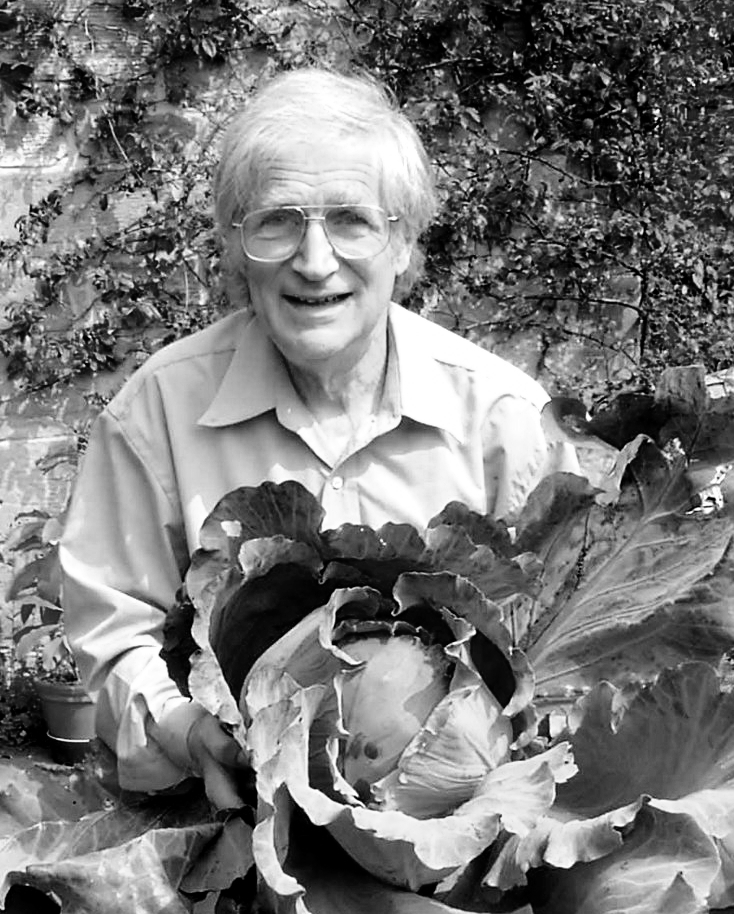 |
Education BA and D.Phil in Biochemistry, University of Oxford Career Ulrich Loening held positions from 1959 to 1989 at the Departments of Botany and Zoology in the University of Edinburgh, doing research on RNA and protein synthesis, and organising and teaching courses in biology. Connecting to an old interest of his, natural history, and to practical experiences in farming and gardening as a child, he then became increasingly involved with questions related to the impact of human society on the environment. In 1972 the geneticist Conrad Waddington at the University of Edinburgh founded the „School of the Man-Made Future“ to research and lecture on environmental matters, for students and public after normal working hours, so all could attend. After Waddington’s sudden death in 1975 the University announced its closure, whereupon Ulrich helped to merge its activites with the separately run „Centre for Human Ecology“ (CHE); Loening himself became its director in 1984. The Centre organized lecture series, carried out research projects and did consultancy work. It developed the first British MSc programme in Human Ecology. Ulrich retired in 1995 and again the University announced that it would close down the Centre, this time for good. The Centre, however, managed to become an independent organisation, for a while accredited by the Open Unniversity. When this ceased, the CHE was invited to join the University of Strathclyde, where it continued the MSc until it was again closed. It is now an independent body located in Glasgow, but without its Msc courses. Loening is still affiliated with CHE in an advisory capacity. The lessons from all these years show both the need for human ecological education, in order to add ecological thinking into other professions and trades, and they show how univerisities seem not able to fit this into their structures. Ulrich has also been a member of the Balaton Group, on resource modelling and ecology over many years. Ulrich's interests in molecular biology merged with ecological concerns about genetic engineering, and he is now reviewing, writing and lecturing about this. |
| Prof. Dr. Mathis Wackernagel |
Präsident der Organisation Global Footprint Network - Swizzerland |
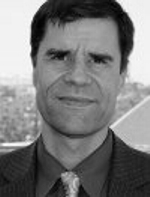 |
Education Mathis Wackernagel studied Mechanical Engineering at the ETH in Zurich (Diploma) and then Community and Regional Planning at the University of British Columbia in Vancouver (Ph.D.). In his doctoral thesis he developed the idea of the ecological footprint. It is a bookkeeping method that measures the human consumption of biological resources in terms of land area required and compares it with available biocapacity. Career In 1995 Wackernagel founded the Centro de Estudios para la Sustentabilidad at the University of Anáhuac de Xalapa in Mexico and was its director until 1997. From 1998 to 2003 he served as director of the sustainability program of Redefining Progress in Oakland, CA. Together with Susan Burns he then founded his own non-profit organization, a think tank called Global Footprint Network with headquarters in Oakland. The ecological footprint technique was further refined and standardized so that the resource pressure on the environment can be calculated for any country or for the whole globe. The Global Footprint Network cooperates with many governments and organizations worldwide. From 2011 to 2015, Wackernagel was also the Frank H. T. Rhodes Class of 1956 Visiting Professor at Cornell University. Awards The pathbreaking work of Wackernagel and his organization has been distinguished by numerous awards, among them the Herman Daly Award of the US Society for Ecological Economics (2005), the WWF Award for Conservation Merit (2006), the Skoll Award for Social Entrepreneurship (2007), the Zayed International Prize for the Environment (jointly awarded with UNEP, 2011), the Blue Planet Prize 2012, the International Association for Impact Assessment’s Global Environment Award (2015) and the RECYCLAPOLIS National Sustainability Award (2015). In 2007 Wackernagel received a honorary doctorate from the University of Berne, and in 2014 both Wackernagel and Burns were inducted into the Hall of Fame of the Internatiaonal Society of Sustainability Professionals (ISSP). |

